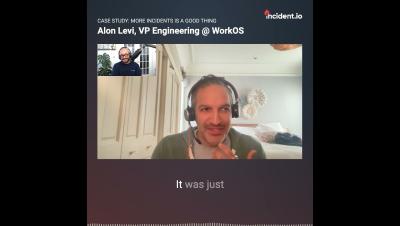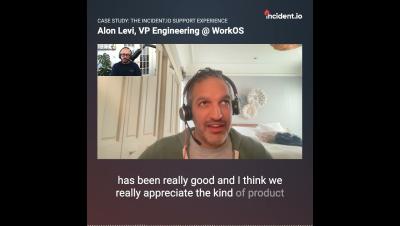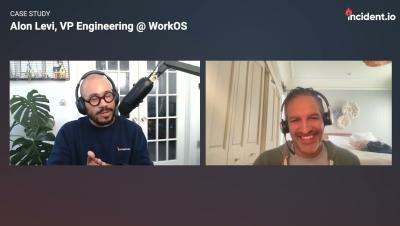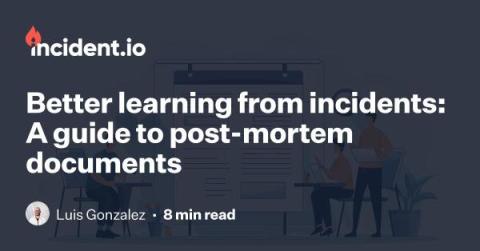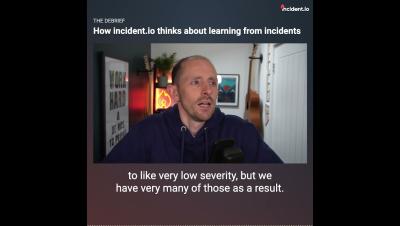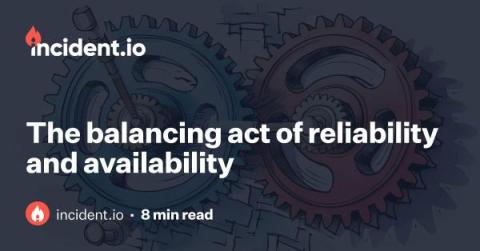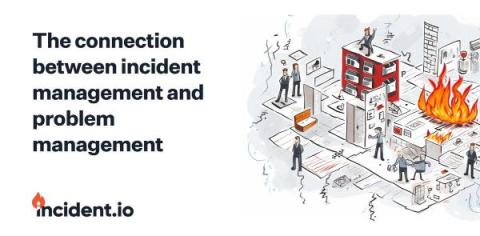Operations | Monitoring | ITSM | DevOps | Cloud
September 2023
How incident.io's intuitive UI is great for non-technical responders
How WorkOS has benefitted from incident.io's high-quality support
Better learning from incidents: A guide to incident post-mortem documents
If you’re just starting out in the world of incident response, then you’ve probably come across the phrase “post-mortem” at least once or twice. And if you’re a seasoned incident responder, the phrase probably invokes mixed feelings. Just to clarify, here, we’re talking about post-mortem documents, not meetings. It’s a distinction we have to make since lots of teams use the phrase to refer to the meeting they have after an incident.
Clouds, caches and connection conundrums
We recently moved our infrastructure fully into Google Cloud. Most things went very smoothly, but there was one issue we came across last week that just wouldn’t stop cropping up. What follows is a tale of rabbit holes, red herrings, table flips and (eventually) a very satisfying smoking gun. Grab a cuppa, and strap in. Our journey starts, fittingly, with an incident getting declared... 💥🚨
How we've made Status Pages better over the last three months
A few months ago we announced Status Pages – the most delightful way to keep customers up-to-date about ongoing incidents. We built them because we realized that there was a disconnect between what customers needed to know about incidents, and how easily accessible this information was. For example: As we built them, we focused on designing a solution that powered crystal-clear communication, without the overhead — all beautifully integrated into incident.io.
How incident io thinks about learning from incidents
The struggles of actually applying incident theory
What's wrong with MTTR?
Active and passive learning from incidents
The Debrief: Learning from incidents is not the goal
The balancing act of reliability and availability
As consumers, we expect the products and software we buy to work 100% of the time. Unfortunately, that’s impossible. Even the most reliable products and services experience some disruption in service. Crashes, bugs, timeouts. There are a ton of contributing factors, so it's impossible to distill disruptions down to a single cause. That said, technology is becoming more and more sophisticated, and so is the infrastructure that supports it.
The connection between incident management and problem management
Sometimes, two concepts overlap so much that it’s hard to view them in isolation. Today, incident management and problem management fit this description to a tee. This wasn’t always the case. For a long time, these two ITIL concepts were seen as distinct—with specialized roles overseeing each. Incident management existed in one corner and problem management in the other. Then came the DevOps movement and the lines suddenly became blurred. So where do they stand today?
Practical guidance for getting started as a site reliability engineer
At the beginning of May, I joined incident.io as the first site reliability engineer (SRE), a very exciting but slightly daunting move. With only some high-level knowledge of what the company and its systems looked like prior to this point, it’s fair to say that I didn’t have much certainty in what exactly I’d be working on or how I’d deliver it.


